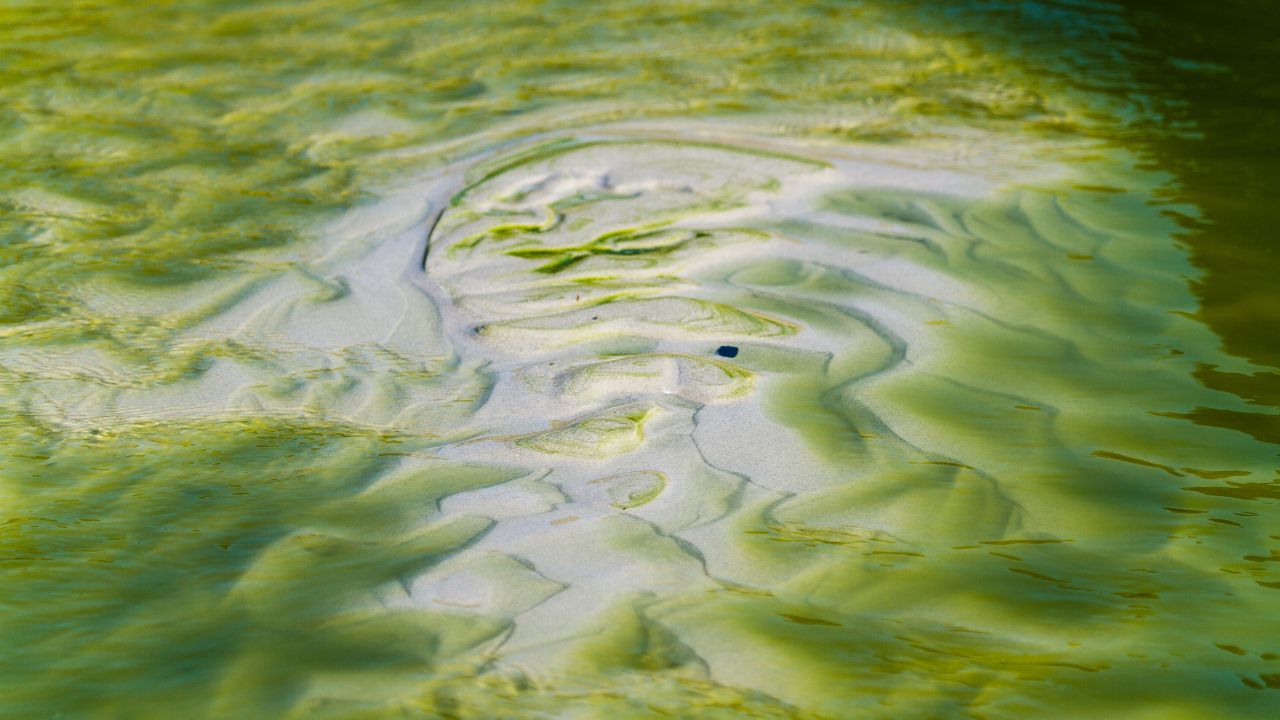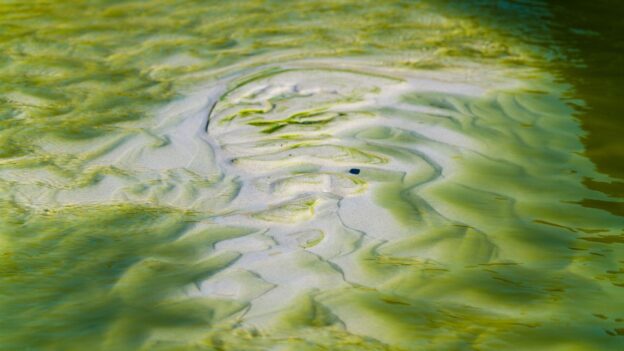
Key Takeaways:
- Sludge slowly kills ponds – That stinky muck starves fish, feeds algae, and clogs pumps if left unchecked.
- Harsh cleaning hurts more than helps – Power washing or chemicals destroy the good bacteria your pond needs to stay balanced.
- The right tools make all the difference – Sludge vacuums and natural bacteria treatments clean without disrupting your pond’s delicate ecosystem.
- Prevention beats cure – Simple habits like not overfeeding fish and removing leaves stop sludge before it starts.
- Pros fix what DIY can’t – When water smells rotten or fish struggle, expert help saves time and money in the long run.
Let’s talk about sludge. That nasty, mucky layer at the bottom of your pond that smells bad and makes your water look dirty. If you’ve noticed more algae growth, murky waters, or your fish acting stressed, sludge might be the problem.
The good news? You don’t have to drain your whole pond to fix it. With the right sludge removal strategies, you can clean out the gunk without harming your aquatic life. And in Orange County, where ponds face hot summer months and excess nutrients, keeping sludge under control is a must.
Why Sludge Is Bad for Your Pond
Sludge isn’t just ugly—it’s harmful. It’s made up of organic waste like fish food, leaves, and dead plants. Over time, this stuff piles up and starts rotting. Here’s what happens next:
- Poor water quality – Rotting sludge releases ammonia and other harmful substances that stress fish.
- Algae blooms – Sludge feeds algae, turning your water green and choking out aquatic plants.
- Low oxygen – Too much sludge means less oxygen for fish and beneficial bacteria.
- Clogged pumps – Thick sludge can block your pond pump and filtration system.
If you ignore it, sludge will slowly ruin your pond’s health. But cleaning it the wrong way can be just as bad. That’s why professional sludge removal matters.
How to Remove Sludge Without Harming Your Pond
You might think, “Why not just power wash the whole thing?” Bad idea. Aggressive cleaning kills beneficial bacteria and disrupts your delicate balance. Instead, here’s how pros do it:
1. Sludge Vacuums (The Safe Way)
A pond vacuum sucks up sludge without disturbing your pond’s ecological balance. It removes the gunk but leaves healthy bacteria and tiny organisms that keep your water clean.
2. Beneficial Bacteria Treatments
Special bacteria blends eat sludge naturally. They break down waste so it doesn’t pile up. This is a great option for pond owners who want to prevent sludge before it gets bad.
3. Partial Water Changes
Sometimes, you need to remove some water (but never all of it). We replace it with fresh, treated water to dilute excess nutrients and improve water quality.
4. Upgrade Your Filtration
If sludge keeps coming back, your filter might be too weak. Custom-made filtration units handle more waste and keep water clearer longer.
5. Manual Removal (For Heavy Build-Up)
In extreme cases, we carefully scoop out sludge by hand or net. This works best for small backyard ponds with thick sludge layers.
Important: Avoid harsh chemical treatments. They might clear sludge fast, but they also kill good bacteria and hurt fish.
How to Prevent Sludge Before It Starts
The best sludge removal? Not needing it in the first place. Here’s how to stop sludge from taking over:
- Clean debris regularly – Skim leaves and excess fish food before they sink.
- Don’t overfeed fish – Uneaten food = more sludge.
- Use sludge-eating bacteria – Add them monthly to break down waste.
- Check your pump – A strong pond pump keeps water moving so sludge doesn’t settle.
- Add more plants – Water lilies and other aquatic plants absorb excess nutrients that feed the sludge.
A proactive approach saves you from bigger headaches later.
When to Call a Professional
Some sludge problems are too big for DIY. Call a pro if:
- Your pond smells like rotten eggs.
- Fish are gasping at the surface (low oxygen).
- You see thick, black muck covering the bottom.
- Algae control stops working.
At Orange County Pond Services, we handle sludge the right way—keeping your water feature clean and your fish safe.
Need Pond and Fountain Repair in Orange County? We Can Help
Sludge is just one common issue ponds face. If your outdoor fountain isn’t flowing right or your pond filtration is failing, we’ve got you covered. We stock pond fountain parts and supplies in Orange County, so repairs happen fast.
From garden water fountains to large koi ponds, we know how to keep aquatic ecosystems thriving. Don’t let sludge ruin your water garden—call us today for a cleaner, healthier pond.
Your pond should be a relaxing escape, not a sludge pit. Let’s fix it!
